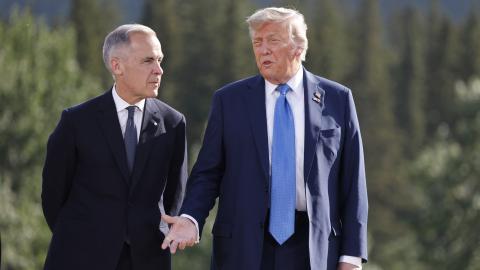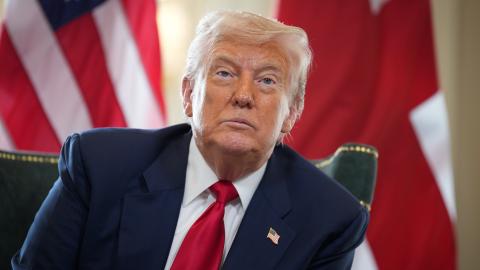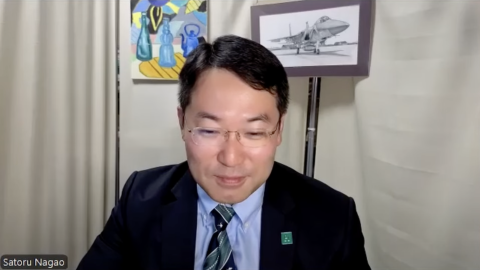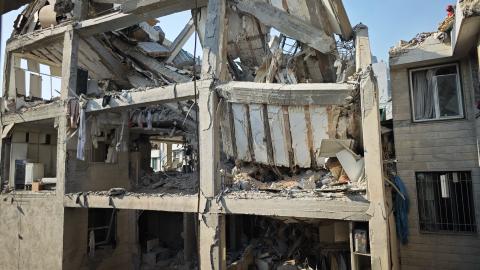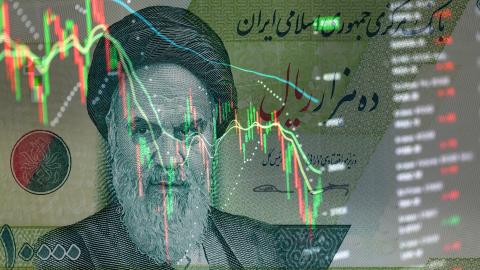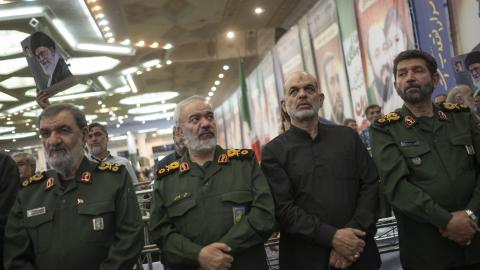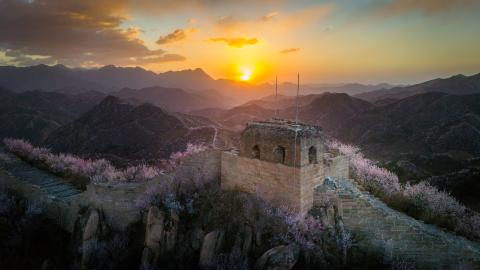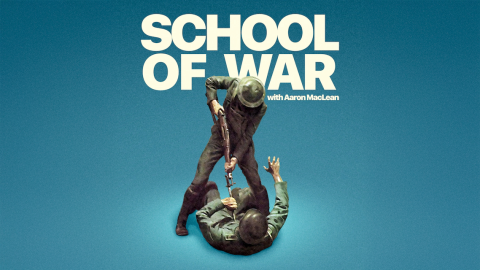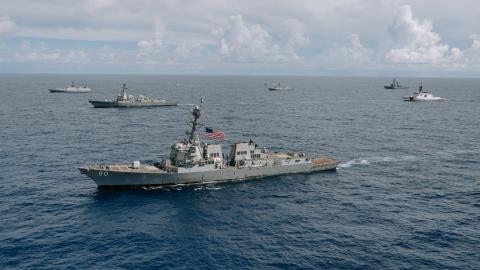
Assessing the Armenia-Azerbaijan Agreement

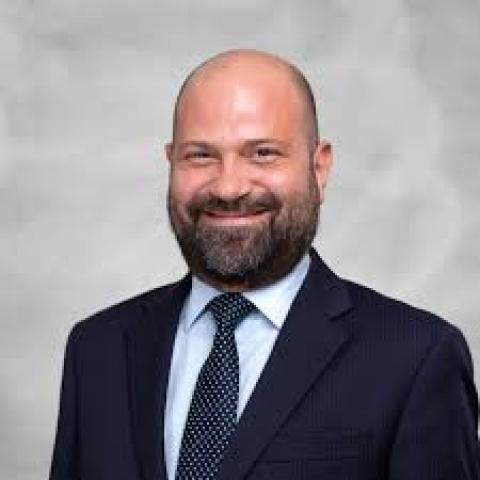
Professor of Practice, ADA University and editor, Baku Dialogues

Senior Fellow and Director, Center for Peace and Security in the Middle East
Michael Doran is a senior fellow and director of the Center for Peace and Security in the Middle East at Hudson Institute. He specializes in Middle East security issues.

Research Fellow, Center for Peace and Security in the Middle East
Zineb Riboua is a research fellow with Hudson Institute’s Center for Peace and Security in the Middle East.
President Donald Trump has invited Azerbaijani President Ilham Aliyev and Armenian Prime Minister Nikol Pashinyan to the White House for a landmark summit aimed at ending decades of hostility. The leaders are expected to sign key agreements to establish lasting peace between their long-divided nations.
Research Fellow Zineb Riboua will moderate a conversation on the potential implications of this historic accord with Senior Fellow Michael Doran and Damjan Krnjević Mišković, professor of practice at Azerbaijan’s ADA University and editor of the policy journal Baku Dialogues.
Event Transcript
This transcription is automatically generated and edited lightly for accuracy. Please excuse any errors.
Zineb Riboua:
Hello everyone. I’m Zineb Riboua, a research fellow at the Center for Peace and Security in the Middle East at the Hudson Institute. And today I have with me two distinguished guests to assess the peace agreement and all the transformation really of the relationship between Armenia and Azerbaijan. So with me today, Damjan Krnjević Mišković, professor of Practice, Director of Policy Research at ADA University. Damjan served as a senior political strategist and crisis counselor at both international and national levels. He went to ADA University from Belgrade, Serbia, serving as Executive Director of the Center for International Relations and Sustainable Development. He’s also the editor of the journal Horizons. His former appointments include Senior Special Advisor to the President of the UN General Assembly, as well as Special Advisor to the President of the Republic of Serbia.
Thank you very much for joining us, Damjan, and of course with us, Michael Doran, senior fellow, as well as Director of the Center for Peace and Security in the Middle East. So I guess let’s start with you, Damjan, you’re joining us from Azerbaijan, if I’m not wrong, and I would love for you to just give us just your overview, give us a great perspective, what is going on and why now.
Damjan Mišković:
Well look in Trump’s second inaugural, he talked about measuring success by the wars that America can help end and the wars that America never gets into. And he talked about how he wants his proudest legacy to be that of a peacemaker and a unifier. And I think that he’s shown that he can do this successfully in various theaters when a peacemaking opportunity presents itself, the Trump administration takes a serious look at whether it’s in America’s interest to play a role. And that’s more or less how we got to today’s meeting involving President Ilham Aliyev of Azerbaijan, Prime Minister Nikol Pashinyan of Armenia and President Trump. And I think that it signals that the U.S. wants to play a larger than ever before role in sort of engendering a geopolitical and a geoeconomic and a connectivity reconfiguration of the South Caucasus and Central Asia. These are sort of two subregions that I think the Trump administration has figured out. You have to look at holistically and think of as one region.
I call it the Silk Road region. And in this regional context, Azerbaijan is the indispensable state. Zbigniew Brzezinski had this line that I know that Mike Doran likes also. Azerbaijan is the cork in the bottle for, I think he said, unlocking the riches in Central Asia or something like that. And that’s what the Trump administration has done. They took a step back and they looked at the map and then they tried to figure out which countries in this part of the world are important and which are genuinely sovereign. So in the first quarter of the year, one of President Trump’s envoys, Steve Witkoff, who’s in charge of the Russia relationship or the Russian negotiations or whatever you want call it, the Middle East, Iran, Israel, the GCC, and so on. And I think at this point we can say the South Caucasus.
So Witkoff came to Baku in late February, early March, this and that, in the context of a trip to Moscow. And then he and his team and some other senior officials, very serious political appointees, most of which work in the State Department, they came to Baku several times after that initial Witkoff meeting with President Aliyev. And then a bunch of things started happening. Baku started hosting various meetings involving Israeli and Turkish officials. There was a Syria-Israel angle. There were officials from other neighboring countries that were also part of the mix sometimes. All of this happened again after this first Witkoff visit. And I know that all of this resulted in a strategic reappraisal by that core team of people who was given the task of looking at this part of the world with fresh eyes. And I think that they saw the value of Azerbaijan as sort of the indispensable state for advancing American interests in the South Caucasus and Central Asia.
And they identified Azerbaijan and Kazakhstan and Uzbekistan as sort of the sovereign anchors of this region, what a friend of mine who teaches at the U.S. Naval War College, Nicholas Gvozdev and I, call keystone states. These are countries that are in the business of conducting their foreign relations towards outside actors through the lens of what I’ve called strategic transactionalism. Now, over at Carnegie, even Evan Feigenbaum has this term, or it’s a phrase or something, extracting more from more, right? The preferred mathematical operations for countries like Azerbaijan are addition and multiplication, not subtraction and division. So the overarching posture of these countries is something like receptivity towards all outsiders, including the United States, if it’s willing to treat that country, in this case Azerbaijan, with genuine respect, and to acknowledge that there are sovereign limits to what can and can’t be done, but within or below those limits, everything is possible if you start thinking strategically.
So I think that my point here is that a country like Azerbaijan is not anti-anyone. It’s not anti-American, anti-E.U, anti-Russian, anti-Iranian, anti-Turkish, anti-Chinese. It’s just pro itself, right? This is one of these countries that puts itself first and it’s national interest first, and that’s one of the reasons that Azerbaijan, I think, in the context of the way that the Trump administration is thinking, is a genuinely sovereign state that you can deal with in a serious way. So I think that my point here is that there was... The Trump administration saw an opportunity to help in a peacemaking effort that was already underway, and they saw an opportunity to correct the terms of a bilateral relationship that certainly in the Biden period was characterized by a level of bias or of what here people like to say anti-Azerbaijanism. It was genuinely shocking because it displayed a lack of understanding of geopolitical and geostrategic and geoeconomic realities about this part of the world.
So that I think is what really got us to this point, this mistreatment, and we can get a little later into what that means in particular and how I think we’re going to get this rectification or the beginning of a rectification today, or the public beginning of a rectification. This mistreatment is, and choosing to move beyond that, on the part of the Trump administration is an integral reason or is an important reason why we’re having this objectively historic trilateral meeting involving the President of Azerbaijan, the Prime Minister of Armenia and the President of the United States.
Zineb Riboua:
Thank you very much. This was really a great way to really just set the stage. And Mike, I would love to hear your thoughts. Maybe what was your first thought when you saw the Trump route for international peace and prosperity?
Michael Doran:
I laughed the first I heard it because if ever there was an issue that was designed for Donald Trump to intervene on the basis of his assumptions about how the world works, how the world should work, it’s this issue. It’s kind of perfectly made for Donald Trump. This issue being what the Azerbaijanis call the Zangezur Corridor. Azerbaijan is separated from the main part of Azerbaijan, Azerbaijan proper and Nakhchivan. This is its exclave by Armenia. So think of the United States and Canada, the United States and Alaska separated by Canada. What the Azerbaijanis want is a route, an economic corridor, but also a connectivity for citizens between Azerbaijan proper and its Nakhchivan exclave, and that should go across Armenia. The Armenians agreed to this in principle when they lost the war in 2020, the second Karabakh war, but they were very reluctant to actually give this route to Azerbaijan, to accede to this for two reasons.
One, they fear a huge land grab by the Turks and the Azerbaijanis. They fear that Turkey and Azerbaijan will move against Armenia from either side and basically lock off the southern part of the country and make it part of Azerbaijan. And whether that’s a realistic fear or not, it’s a real fear. It’s part of Armenian politics and they are supported in that fear is encouraged by Russia and Iran. I think this is the big picture that we need to see here is that the United States is making a major move that is weakening the Russians and the Iranians in the South Caucasus.
I’ll get back later in the discussion about why the Iranians feel particularly strongly about this Zangezur corridor or what we’re now calling the Trump route for international peace and prosperity trip. So you had a case here where the Trump administration could see that a route which is really designed, the greatest importance of which for the rest of the world, for everyone other than Azerbaijan, is simply connectivity and economic connectivity and economic prosperity, not just for the Azerbaijanis and the Turks and Central Asians, but also from the Armenians.
Armenia is a satellite of Russia and an ally of Iran. The commanding heights of the Armenian economy are dominated by the Russians, and it’s very hard for Armenia to break loose of its Russian patron. The Ukraine War has weakened Putin in the South Caucasus. Of course, the victory of Azerbaijan in second Karabakh war and then the military operations that followed have also done a lot to weaken Russia in the area, and they have created a space that allows Prime Minister Pashinyan in Yerevan to pivot toward the West and away from Russia.
I mean, this is the great irony of the whole situation, is that the victory of Azerbaijan over Armenia in 2020 is what is allowing Armenia to break free from Russia or creating the essential conditions that allow it to happen. But it’s very hard for Prime Minister Pashinyan to concede on this question of the Zangezur corridor without the American guarantee, because if he’s doing that without the American guarantee, then it looks like that he’s just trading subservience to Russia for subservience to Turkey and Azerbaijan, or at least it can be depicted that way in Armenian politics, which for anyone who’s even mildly familiar with the Armenian politics would understand what an untenable situation that is.
But if you have the United States, the greatest power on Earth come in and say, we will guarantee this corridor. This corridor is for purposes of economic connectivity and for citizens of Azerbaijan to move back and forth between the two parts of their country, it makes it a lot more palatable for Prime Minister Pashinyan to go along with this. And so it really is really for a fantastic affirmation of the Trump worldview, the Trump worldview being that with, when we think about economics first and we bring in the military support after the economics, we can make a lot of things happen.
Also, Trump is a foreign policy realist. He deals with the world the way it is, not the way we all want it to be, and that also makes things a lot easier. You just say, who’s our friend? Who’s doing things that are in our interests? All those things that Damjan just talked about. And you say, well, if that’s the case, let’s do it. Let me just make one other quick point here, if I may. I know I’ve gone on a bit. There is someone, we’re taping this on the morning of Friday before Prime Minister Pashinyan and President Aliyev meet together in the Oval Office with President Trump. I want to make sure that everyone realizes that there’s another leader who was crucial in this process who will not be present there in the Oval Office today, but-
Michael Doran:
... present there in the Oval Office today.but whose presence needs to be recognized if we’re to understand what’s actually going on. And that leader is President Erdogan of Turkey. The Turks did a lot to pave the groundwork, and to hand this package to the Americans so that this will be a success. By normalizing, by making peace with Azerbaijan, at the same time, Prime Minister Pashinyan is also going to normalize with Turkey. And that’s going to open up the Armenian economy. And it’s also what’s going to move Armenia away from Russia and Iran, and toward the west.
Pashinyan is moving toward the West by hitching a ride on the Turkish-Azerbaijani Alliance, which is really it’s a remarkable thing that’s going on. This is really a huge historic transformation. And I think we have to give credit to President Erdogan and we have to acknowledge the courage of Prime Minister Pashinyan. Tremendous courage. And we also have to recognize the geostrategic acumen of President Aliyev. I think he’s one of the greatest geostrategic thinkers of the age. He doesn’t get the credit he deserves because he is operating in a relatively small country and under the radar. But ultimately he’s the architect of this whole thing.
Zineb Riboua:
Yeah. So Damian, I would like for you to expand on what Mike said about Russia’s declining role and also the emergence of the Turkish-Azerbaijani Alliance. How would you define that? Especially because of the fact that after the Twelve-Day War, and during the Twelve-Day War, the Iranians did not get any help from Russia. The Russians have exhausted all of their political capital. And I’d love for you to give us more of an overview.
Damjan Mišković:
Yeah, let me just try to set this up a little bit. This is a neighborhood, Azerbaijan is the only country in the world that borders Turkey, Russia, Iran. That’s very complicated. So what Mike said about President Aliyev’s abilities, the only thing I can add here is that I’ve been here for now five years, and I sit in on a masterclass of statecraft on a daily basis. It’s very impressive to see, particularly given the genuinely tough neighborhood. Prime Minister Pashinyan is also in an incredibly complicated situation. And you want to call it courage. You want call it being bold. You want to call it being even, I don’t know, a man ahead of his time, whatever. But one of the things that Prime Minister Pashinyan, I think really understands, and he has a partner I think in President Aliyev, is that the key to Armenian prosperity looking ahead years and decades, is peace and normalization with Azerbaijan establishing a connectivity framework that works for everybody.
And of course the opening up and the normalization with Turkey. At the same time, both of these countries understand that they’re dealing with neighbors that are not... Well, it’s not Costa Rica. All right? Costa Rica doesn’t have an army. Both Armenian neighbors and Azerbaijani neighbors are well more complicated than that. So what does this mean? It means that as important as this reconfiguration that President Trump is pushing, and that will happen today, or the first part of it will happen today, it’s very important to keep in mind that you can’t just ignore the facts of geography. Russia and Iran have serious strategic limitations now for reasons having to do with events in other geopolitical theaters or adjacent geopolitical theaters. But that doesn’t mean that they’re not going to have some kind of a reaction to this, especially if it takes off. The Iranians, I saw somewhere, actually, I think that Mike Duran tweeted this, that a foreign policy advisor of the Supreme Leader was very negative about, I don’t remember the exact language, but about the possible outcomes of this meeting.
We’ll see what the reaction is. Mike is of course right, that this represents, in many ways, a downgrading of Russian influence, maybe even a strategic downgrading of Russian influence. For how long? We’ll see. Because not only did Armenia in principal agree to provide for unobstructed or unimpeded movement of persons, vehicles and cargo between Nakhchivan and mainland Azerbaijan in the document that ended the Second Karabakh War in 2020, but Armenia also agreed to have Russian FSB troops responsible for overseeing these, what were called in the text transport connections, which included, subject to an agreement between Azerbaijan and Armenia, a road and rail links. The restoration of the ones that were built in the Imperial period and then extended in the Soviet period. So the fact now that whatever the specifics of the terms that will be announced more or less, as soon as we stop talking, whatever they will be, they clearly will not involve Russian Federal Security Services troops.
So you have a very, very concrete example of this geopolitical turn. The Iranians have a problem with this route, notwithstanding the American involvement in it, which just makes it worse from their perspective. Because for the last 30 years, if you wanted to go from Nakhchivan to mainland Azerbaijan by road or by rail, well by road, you had to go through Iran, which was the shortest route. Or you had to go all the way around through Georgia back in Azerbaijan.
This is one of those, even putting aside all of the geopolitical concerns that Iran has made clear that it doesn’t want outsiders taking a larger role in all that, although it seems very difficult to imagine that they can do something really serious about it at this point. There’s an economic component to this. This route that had been a great moneymaker and had been also part of a larger Azerbaijani-Iranian relationship that involved trade in various ways, is now going to be subject to revision, by virtue of the fact that if trip actually happens, and I think it will, no one’s going to use the Iranian alternative. And that hurts Iran directly, even putting aside, as I said, the geopolitical aspect.
But I want to say something else, we’re really in a two-stage process. Stage one happens today. There are going to be various documents that are going to be signed. There’s going to be, I don’t know, a joint declaration that the three principals will sign or Aliyev and Pashinyan. It’s not clear on concrete pathways to peace. Foreign ministers are going to initial the text, which is a diplomatic way of getting the peace treaty text, which is a diplomatic way of basically saying, “We’ve agreed that the text is closed. We’ve agreed on it. It’s closed. The time is not yet ripe to sign it formally.” There’s going to be a joint letter apparently requesting on behalf of Armenia and Azerbaijan, the dissolution of the Minsk Group. You’re going to have separate bilateral agreements, Armenia-US, Azerbaijan-US.
The Armenia-US one is going to get into all the modalities of what TRIP is going to look like, who’s going to run it. It’ll operate under Armenian law. But as far as I understand, it’s very clear that there will be some kind of language that will talk about unimpeded access or unrestricted access, which is, I think, a very, very important red line for Azerbaijan. That somehow in the context of however these modalities end up getting resolved is becoming acceptable to Armenia. In the Azerbaijan-US text, you’re going to have some kind of a commitment to waive and then suspend, and ultimately to eliminate this infamous section 907 of the Freedom Support Act of 1992, which put the United States in the business of sanctioning Azerbaijan. And made it impossible to have a predictable strategic security relationship, including arms sales and engagement with the US military bilaterally and via partnership for peace and so on.
All of this is going to happen, or some version of this is going to happen today. But stage two starts on Monday, or step two starts on Monday. Working groups on implementation. Abraham Accord’s extension in one way or another. Looking to engage Central Asia in the context now of TRIP, extending the circle of peace, both in the context of Abraham Accord’s and Central Asian engagement. Obviously Turkey-Armenia normalization. And also dealing with the geopolitical fallout of whatever the Russian reaction ends up being and what the Iranian reaction already we have a taste is likely to be. And I really want to emphasize this. Both Azerbaijan and Armenia have to figure out, and probably are in the midst of figuring out, how to reach accommodations that don’t provoke those two neighbors into reacting in ways that would not be conducive to this idea of transforming the South Caucasus, and making the middle corridor sort of the backbone of the Silk Road region or Eurasia.
Zineb Riboua:
Thank you very much. And Mike, actually, I want you to expand on the Iran question. Because there is something that the Trump administration is doing that no other administration did. It reinserted itself in the Levant. It saw Syria, and now it’s going to Central Asia and the Caucasus directly aiming at the Belt and Road Initiative of China. But also they are capitalizing on every single weakness that Iran has shown, whether it’s through the exhaustion of its proxies or now, as Damian explained, how Iran has had that monopoly over the route that the Azerbaijanis were using. How do you see Trump’s Iran policy in that regard?
Michael Doran:
Oh, it has absolutely played an important role in paving the way to all of this. The setback to the Iranians by the Israeli and American attacks, and what’s been called the 12 Days War, I think it’s a misnomer. I think that October 7th was the beginning of an Iranian-Israeli war, and the 12 days in which Israel and the United States hit Iran’s nuclear sites and ballistic missile sites was a campaign within that larger war. There’s no doubt that it set back Iran severely and limited the ability of Iran to carry out attacks against neighbors and disruptive activities. So it helped to create the climate that allows the United States to make a move in the South Caucasus. This is an area of the world where the United States really has not been active. Historically, the South Caucasus was in Russia’s backyard. All of this was Armenia, Azerbaijan were part of the Soviet Union.
So there’s no deep history of American interest in the region, and there’s no part of the American government, no component within the American government that wakes up every morning and thinks about American interest in the South Caucasus. There’s a number of parts of the world that are like this, Zaynab, including Syria actually. Because all during the Cold War, Syria was not part of the Soviet Union, but it was solidly within the Soviet camp. And the United States never really thought deeply about its relations with Syria. Policy towards Syria is always a function of policy towards something else. And now I think you’re 100% correct in mentioning that Trump has a Syria policy, and Trump has a policy in the South Caucasus. And as Damian suggested when he mentioned that there’s this component of Abraham Accord’s enlargement, there’s talk of...
Michael Doran:
... component of Abraham Accords enlargement. There’s talk of Azerbaijan and Armenia joining the Abraham Accords. Like you, Zineb, I see that as the American answer to the Belt and Road. It clearly shows that there’s an understanding in the White House of the connectivity between the South Caucasus and the Middle East.
Of course, these are areas, too, where both of these areas, South Caucasus and Syria, are areas where the United States is moving into a vacuum left by the retreat of Iran to a certain extent. Really, Damian explained very well why this is the United States moving into a vacuum left by Russia, but it’s a vacuum that Iran cannot possibly fill in the case of the South Caucasus and it’s a vacuum that Iran left in Syria. This is happening, like I said, due to an alignment between Washington and Ankara, but Israel is also there in the picture.
Israel did the lion’s share of work in weakening Iran in the war and Israel is also a key ally of Azerbaijan. Azerbaijan has the unique status of, as Damian mentioned, of being the only country in the world that borders both Russia and Iran or Russia, Iran, and Turkey, if you want to add Turkey in there. Azerbaijan is also one of the very few entities in the world that looks at Ankara and Jerusalem as its favorite partners.
All of these things, they all connect up through the Iran question, really. And if I could just add one more dimension to this, Zineb, and that is one-third of all Iranians are ethnically Azerbaijani. There was an amazing clip a month or so ago at the Shusha Conference in Azerbaijan when the Iranian President Pezeshkian was walking together with President Erdoğan and President Aliyev of Azerbaijan. They were all speaking Turkish together because the Azerbaijani language is a Turkic language fully intelligible to Turks.
Pezeshkian of Iran is an ethnic Azerbaijani, and so the Iranian president, the Azerbaijani president, and the Turkish president were all speaking Turkish together. It’s an amazing moment, but it’s one that... Even though the Iranian president was one of the participants in that conversation, it’s one that’s deeply disturbing to the Iranians, because even if that trip, the Trump route for international peace and prosperity, is not used for territorial aggrandizement by Turkey and Azerbaijan, it represents an elevation of Azerbaijan and Turkey in concert with the Americans and, to a certain extent, in concert with the Israelis, but especially of the Turkish-Azerbaijani alliance.
That resonates very deeply on a cultural-political level inside Iran with the Turkic-Azerbaijani minority in Iran and that is deeply disturbing to Tehran. You’ll notice that all across Twitter, a lot of the Persian nationalists in the United States on Twitter have, let’s say, mixed feelings about what’s going on, because they feel the rise of the Turkic power and it disturbs them.
Zineb Riboua:
That’s a very interesting glimpse into, I mean, how much it really hit the core of Iranian influence, really also beyond Iran, also towards the diaspora. Damian, there is another question that I would love to ask you, because today the president of Azerbaijan and president of Armenia are convening and meeting Trump. But yesterday and the day prior, Azerbaijan really reemerged, because it already was an important energy partner. It seems that finally everyone realized how much Azerbaijan plays in that regard. The Europeans have been very much involved, but now the United States, you can see all of the agreements that have been signed, all the companies that have been involved. What can you really tell us about United States being slow, but still now today recognizing Azerbaijan as an important partner and player in energy?
Damjan Mišković:
Well, we have to remember that, without the United States, without President Clinton getting personally involved, the contract of the century that really unleashed the energy revolution or the idea of Azerbaijan as being able to provide and export large quantities of oil and eventually gas to the West via set of pipelines. If it weren’t for Bill Clinton’s personal intervention at a very, very crucial moment in the negotiations of this contract, it never would’ve happened.
It’s now time to get into the details of this. It pains me as a Serb to say anything nice about Bill Clinton, but this is one of those things that he did genuinely, properly advanced American interests and helped propel Azerbaijan into the country that it is today. Obviously, there were lots of other people, Heydar Aliyev, now Ilham Aliyev, and so on, but Bill Clinton played a genuinely important role that people forget. Again, it pains me to say it, but it needs to be emphasized.
The point here is that the United States has understood for 30 years the strategic energy potential of Azerbaijan and has done a fair amount, not just back then but in the interim, to promote that. One of the greatest beneficiaries of this, of course, has been the European Union. We’re talking about trip. We’re talking about peace between Armenia and Azerbaijan, and the only people who seem not to have anything to do with this are the ones who you would naturally think would have an interest in actually getting this peace process to the finish line, which is the European Union and that’s on them.
Getting into why I think we don’t have time to do, except that clearly their capacity to act and to think geopolitically is not what they would like it to be in their own little garden. Now, to come back, though, to this very important energy question, a couple of months ago at Baku Energy Week, Exxon and SOCAR, which is the state-owned oil company and gas company of Azerbaijan, signed a preliminary document. Yesterday, they signed the follow-up to a preliminary document. It’s not yet a binding decision, but I think the signs suggest that it’s on the way to being there.
I can’t talk about the details, but they do involve a level of extracting from new sources or from new areas, hydrocarbons that could be potentially game-changing. Now, the point here is that this is something that is music to the ears of the Trump administration and to the Secretary of Energy Chris Wright, who has done a tremendous job under Trump’s instruction to really unleash the power of oil and gas and every other potential energy source that the market can bear.
I’m also Canadian, so maybe in Canada the Prime Minister will understand that this is also in Canada’s interest. Let’s see. But the point is that understanding the strategic importance of Azerbaijan, the energy component, the indispensability in terms of connectivity, the Israel angle, which is one, again, that Mike talked about but I really want to emphasize again. Azerbaijan really is... It’s like a strategic prize.
Now, Azerbaijan, just like Kazakhstan and Uzbekistan and all the other countries in this part of the world, they don’t want to be subservient to anybody. They’re not anti-anybody and they’re not pro-anybody except for themselves. This is really important to understand. Whenever you can get congruence between the United States and Azerbaijan, I think now it’s clear, as a result of what’s going to happen today or what’s happening today, that those doors are really open. But I really want to emphasize that this is not a limitless possibility, because of the geography, because of the fact that the United States is clearly focused on lots of other things.
I think that the difference between the Trump administration and some previous ones is that there’s an awareness of the strategic importance of this part of the world and how to deal with it and how to benefit the United States and the countries that America engages with. That was clearly absent in the Biden period and in some previous periods as well. Obama comes to mind. But at the end of the day, let’s not forget, this is not next door to the United States. It’s a landlocked part of the world. It’s complicated. The neighborhood is weird.
I have to say I disagree with Mike on one thing.
The idea here is to push the Chinese out or to push out Belt and Road, it’s not going to work. I think that this is one of those parts of the world... Look, here is where the Middle Corridor blends into the Belt and Road. The way that the Chinese have gone about engaging with all of the countries along the Middle Corridor from Kazakhstan to Azerbaijan to Georgia to some of the others... Obviously, the strategic partnership they have or whatever it’s called with Russia is what it is, but they also recognize the value of engaging in the middle row in the context of the Middle Corridor or at least along this route.
The best that the United States can do, and I think this is in the interest of all the countries in this part of the world, is to be present and to invest and to engage. That’s exactly what Trip does, because that’s the way that you can dilute. If the American conception is that China’s the strategic adversary, number one, then the way to deal with China in this part of the world is to engage with this part of the world, but not to make it into a binary proposition because no one will go for that. It’s just not possible.
Zineb Riboua:
But don’t you think that Trump is exactly doing that because he’s publicly trying to engage with China, he’s trying to do all of these deals, et cetera, but at the same time he’s going exactly where the United States wasn’t before?
Damjan Mišković:
No, that’s exactly right, but I think that the end result of this is going to be more of everybody. Again, it’s this formulation that I love from Feigenbaum at Carnegie. It’s about addition and multiplication, not... What did he say? Subtraction and division. You get more from more. Forgive me for using the term that the Chinese like to use win-win, but it really is.
Zineb Riboua:
No, no, no. It’s probably Trump’s favorite term too.
Damjan Mišković:
Well, good. Yeah, that’s right. It is. Because the idea here is that you get American investment, you get some kind of EU engagement, you get the Turks, you get the Russians, you get the Chinese, you get the this, the that, the Gulf and so on. And what does this do? If it’s managed properly by countries like Azerbaijan and Kazakhstan and Uzbekistan that can really carry the region, what they can do is they can play everybody off. But play everybody off not in a negative sense, but in a positive sense. We can all benefit by none of you outsiders making us choose just you.
Michael Doran:
I don’t-
Zineb Riboua:
Mike, do you have any comments on that?
Michael Doran:
I do. I do, because Damian introduced all of that as a disagreement with me, but I don’t think we disagree about any of it.
Damjan Mišković:
That’s good to hear.
Michael Doran:
The Kazakhs came up with this phrase of a multi-vector foreign policy, which is, of course, because... Kazakhstan is sandwiched between Russia and China, as are all of the central Asian republics. Azerbaijan is in a similar position or now in this position between Russia and Iran. And if the United States is not engaged in these areas, then the only choices that these countries have or the overwhelming choice that they have because of their geography is between China or Russia or between Iran and Russia. If the United States and the Europeans... I can dream. We can all dream, Damian. If the United States and the Europeans have a...
Michael Doran:
... And the Europeans have the same strategic picture and they engage, then they open up greater options for these countries, which works in the end. It works to the advantage of the West.
If we’re talking about dreams now, I realize that this is a big dream, but it should be a dream that’s on all of our minds, and that is that one quarter, or the... I’m sorry, the country with the fourth-largest gas reserves in the world is Turkmenistan. And Turkmenistan is just... We just need a few kilometers of pipeline to be built in order to connect up Turkmen gas to Azerbaijan, which can then flow comfortably to Europe across Georgia, and Turkey, and then onto Greece, and to Italy, and along the way it can be diverted up to different parts of Europe.
Turkmen Gas could end the dependence of Europe on Russian gas. It’s a huge game changer. Now, the Turkmen government, for all kinds of reasons, is not currently inclined to do that, because China and Russia don’t want to see all of those resources moving to Europe through a route that neither China, nor Russia, nor Iran control. That should be, if we have our geo-strategic strategic hats on correctly, we should all be thinking about that, and it’s not actually that hard to make it happen if it’s a goal.
But it cannot happen if the President of the United States is not focused on it. It cannot happen if the elites of Europe are not thinking about it. The elites of Europe right now are not even signing to build the kind of infrastructure you need...
On a commercial level only, forget about security questions, but just on a commercial level, to build the kind of infrastructure you need to bring these resources to Europe, you have to be able to sign long-term contracts. And the Europeans are not doing that, or up until now, haven’t been doing that, because they’re fantasizing that they’re going to run their industrial economies on wind and solar.
You have to be dealing with the world the way it actually is to start thinking about these kinds of moves. If you do, and if we have big players like Donald Trump, like leaders in Europe who want to make these things happen, then amazing things can happen.
Zineb Riboua:
Damian, I guess you have some reactions to that.
Damjan Mišković:
All right. So it turns out we don’t disagree, or at least we don’t disagree a lot. I just want to emphasize again, the importance of understanding that it’s not so much choosing options, it’s exercising the right to have all of the options come in and be engaged.
In other words, the point here is not to say... I don’t know, I want to pick. I’m caricaturing. “I want 30% American X percent.” That’s not the idea. The idea is, I think that’s what the idea is in this part of the world, that they think that they can create a set of circumstances in which it’s in everybody’s interest to be in on this thing, “this thing” being the Middle Corridor, the Belt and Road initiative, but with the idea of really building value. We’re not talking about a transport corridor, we’re talking about an economic corridor.
I think Trump really understands that, with the idea being that it’s not just the way to make money here is not just to charge tolls, that’s not how Armenia is going to get rich, that’s not how Azerbaijan is going to deepen its strategic significance in the context of the Middle Corridor. The way to do this is to really emphasize the value added, manufacturing, building stuff, putting things together, shipping them left and right, and so on.
So I do think we’re on the same page, but I just wanted to emphasize how this is a vision that puts the region first, and if it happens to benefit the West, or China, or Russia or Iran, great, but the operating vision in this part of the world, at least by the serious people who run countries in this part of the world, and we can make a longer list, but you start with Azerbaijan, Kazakhstan, Uzbekistan. Their vision is, “What can we do to maximize the benefit of our position and so that we create add value to our citizens. We put our countries first.” And I really think Trump gets that.
Michael Doran:
Totally.
Zineb Riboua:
I think it’s a...
Damjan Mišković:
Of course he does. I don’t mean in the context of America first, in the context of dealing with countries that also think that way.
Zineb Riboua:
I think it’s a very difficult formula that I think Trump decoded where he finds exactly what motivates these countries, what actually brings them wealth and prosperity, and actually makes it also part of the U.S. foreign policy push.
Because if there is, and I’d love to have some of your comments before we close, that there is this new Cold War, basically, talk with Russia, China, Iran building a parallel system. Iran treats proxies. Russia doing it, not just... Now in Central Asia, it seems that is definitely vanishing, but they’re very active in Africa and elsewhere. China is involved all across the globe.
Do you think that this Armenia-Azerbaijan peace deal is actually one of the ways that the United States is actually pushing back against the formation of that axis?
Michael Doran:
Yes, I think it definitely is. I think that this is, for all the reasons that we said before, this on balance, this pushes back against Russia and Iran in particular, less against China.
But it does also push back against China in that it increases, as we were saying, the optionality of the major players in this part of the world. And it gets the United States involved in this part of the world in a way that it hasn’t been involved before. And it gets the United States involved in a way that doesn’t cross any of the red lines in the Make America Great Again movement, which is very concerned about the United States making security commitments that are going to drag it into wars in parts of the world where it doesn’t really understand them. It doesn’t understand what the American interest is there, and ultimately these are wars that are not going to be winnable.
This is not a big security commitment by the United States by any stretch of the imagination. It’s a political, economic diplomatic commitment, and it will only redound to the benefit of the American economy and of America’s, America’s allies. So yes, it is a part of this outlook, but it’s one, I think in keeping with the way that Damian described it, we’re not demanding any, that any of these countries sign up to any kind of commitment to the West against these other players, we’re just helping them realize their own ambitions for themselves, and ambitions that are shared by historically antagonistic countries.
There are very few countries that have been more hostile to each other than Armenia and Azerbaijan, but it turns out they share economic interests, tremendous economic interests and some geo-strategic interests, but only the United States can unlock that shared interest.
Zineb Riboua:
Damian, given Mike’s remarks on the US perspective on this, I’m interested to learn more from how Azerbaijan sees it and sees itself, especially after this agreement. How do you think things will go from here?
Damjan Mišković:
I think, not just Azerbaijan, but Armenians see this as a strategic opportunity to increase their options.
Look, especially when it comes to infrastructure, sometimes if you don’t jump on the train, there’s no next train. So all the pipelines that carry Azerbaijani oil and gas obviously don’t go through Armenia, and they never will. It’s just never going to happen. Armenia will never benefit from all of these things as a result of decisions that were made 30 years ago. That’s how it happens.
But Armenia can benefit seriously from these new connectivity ideas and prospects that are being drawn out now through trip, through the middle Corridor, through Belt and Road and so on. So can Azerbaijan. So that’s all very good. But there’s something that Mike said earlier about the strategic opportunity to harness Turkmen gas from Turkmenistan. And it’s funny because the European Union just the other day, praised the possibility of Turkmen gas coming in, I forgot who said it, I think it was the spokesperson, but then it’s done absolutely nothing to make that happen.
Just like the EU signed an MOU with Azerbaijan on deepening, or whatever the formal term was, the strategic energy partnership in, what was it? 2022, in July 2022, which talked about doubling the capacity of the Southern Gas Corridor and lots of other things, but then has done absolutely nothing to help finance it and to change the regulation, and why?
Because there are some regulations in the EU universe that don’t allow banks that are under its control to finance new or even expanding existing hydrocarbon products, projects, excuse me. And there are all sorts of impediments to allowing energy providers to sign long-term contracts or new long-term contracts for pipeline oil and gas, which makes no sense. So if we’re talking about expanding the capacity of the existing pipeline network, which would be fundamentally important if first because there’s enough oil and gas in Azerbaijan to keep that going, particularly gas.
But also, because if there’s an interest, a strategic interest, in bringing Turkmen Gas into that pipeline network that needs to be expanded, then it needs to be financed, and it needs to be. And because of the way, particularly, the gas market works, you need to have, for pipeline gas, for expanding existing projects or wholly new projects, you have to have long-term contracts. Otherwise, the economics don’t work.
So if the EU is genuinely serious about engaging in this part of the world and yet it doesn’t follow that up in a concrete way, then that’s very close to geopolitical malpractice. And I think that the United States, and Azerbaijan, and Armenia, and some of the other countries in the neighborhood, understand that there are limits to what the EU is able to do or wants to do or can do, given the way that it thinks about the world, which is how the Biden administration used to think about the world, but without an army, and that’s not a recipe for success.
So, I think that the way that Azerbaijan and Armenia are going to walk away from today’s events is that they’re going to look around and see who they can rely on, who they can’t. And as of today, if this all goes well, and if the follow-up is properly managed, then I think that you’re going to see people in Baku and in Yerevan saying, “we can count on the United States, or at least we can count on the Trump administration,” which is something that has been very difficult for anybody sitting in either Baku or Yerevan to be able to say in living memory or well living memory for a while. And so that, I think if that’s my takeaway, we’re at the point now where it’s possible for the first time, let’s say in a generation that somebody sitting in Baku or Yerevan can say, “we can count on the United States.”
That’s good for America. It’s good for Azerbaijan, it’s good for Armenia, it’s good for lots of other countries. It’s not so good for some others, but there it is.
Michael Doran:
It’s a great way to end.
Zineb Riboua:
Well, Damian and Mike, thank you very much for joining me today. Thank you for the overview, and for your remarks, and hopefully see you next time.
Michael Doran:
Thank you.
Damjan Mišković:
Thank you very much. I appreciate having the opportunity to share the screen with all of you. See you soon.

Join Hudson Adjunct Fellow Daniel Batlle and a panel of leading analysts as they examine what lies ahead for Peru and whether the country can convert its economic potential into lasting security and sovereignty ahead of its 2026 elections.

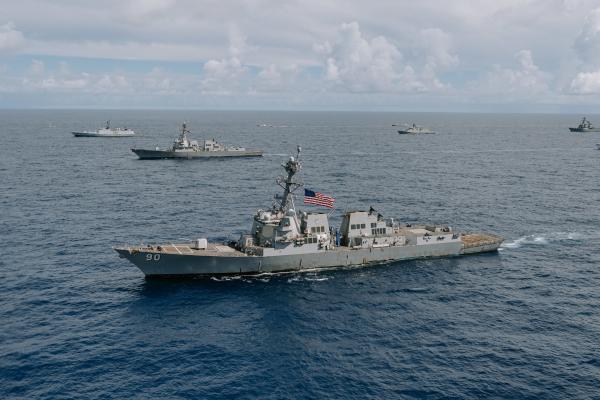
Join Hudson Senior Fellows Bryan Clark and Michael Roberts for a discussion with government and industry leaders about the challenges the US Navy and Coast Guard face amid modernization efforts and how new legislation and regulation can help restore America’s maritime superiority.

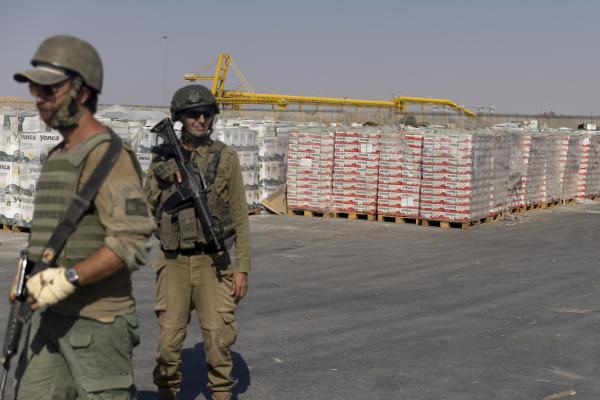
Join Hudson Institute Senior Fellow and Director for the Center for Peace and Security in the Middle East Michael Doran for a conversation with Reverend Johnnie Moore, president of the Congress of Christian Leaders and founder of the Gaza Humanitarian Foundation.
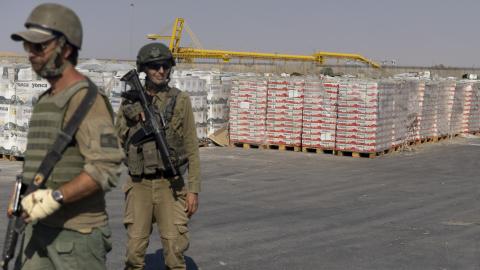
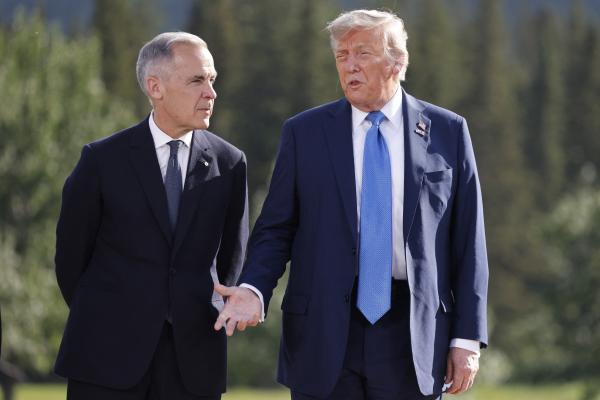
Join Hudson Senior Fellow Matt Boyse for a discussion with former Canadian Minister for Trade and Economic Development Ed Fast, and CNAPS Executive Director Jamie Tronnes, as they explore a new path forward for US-Canada relations and what other allies can learn from the process.
